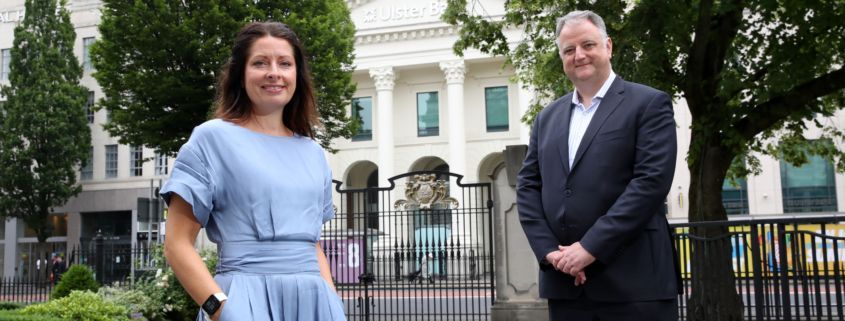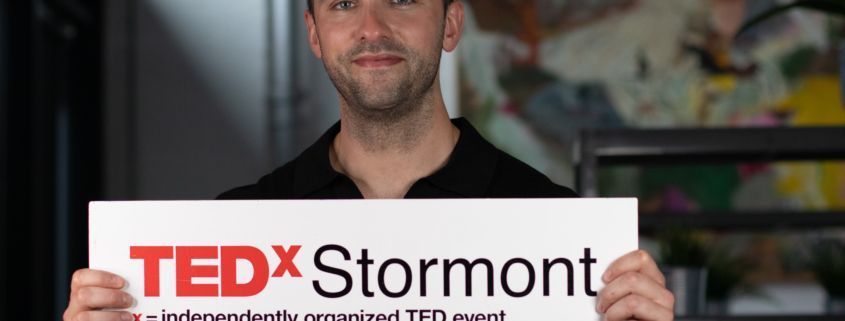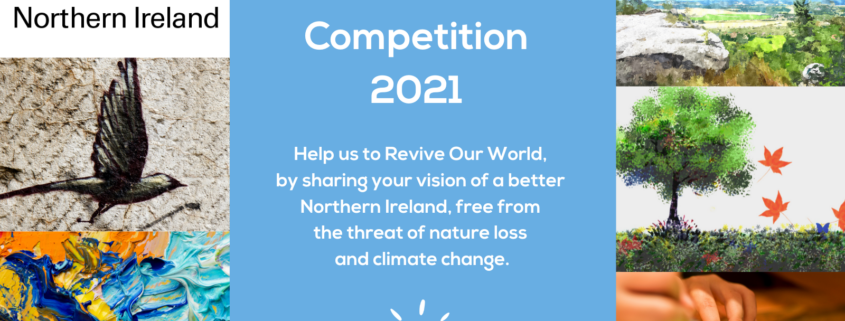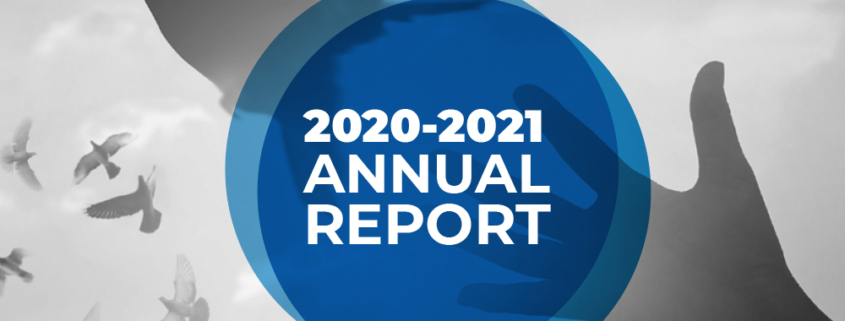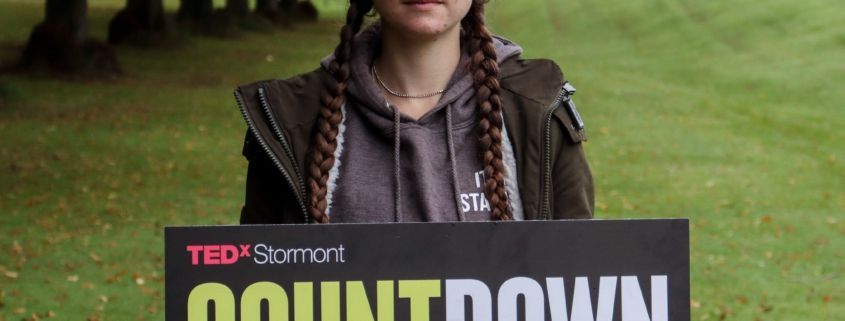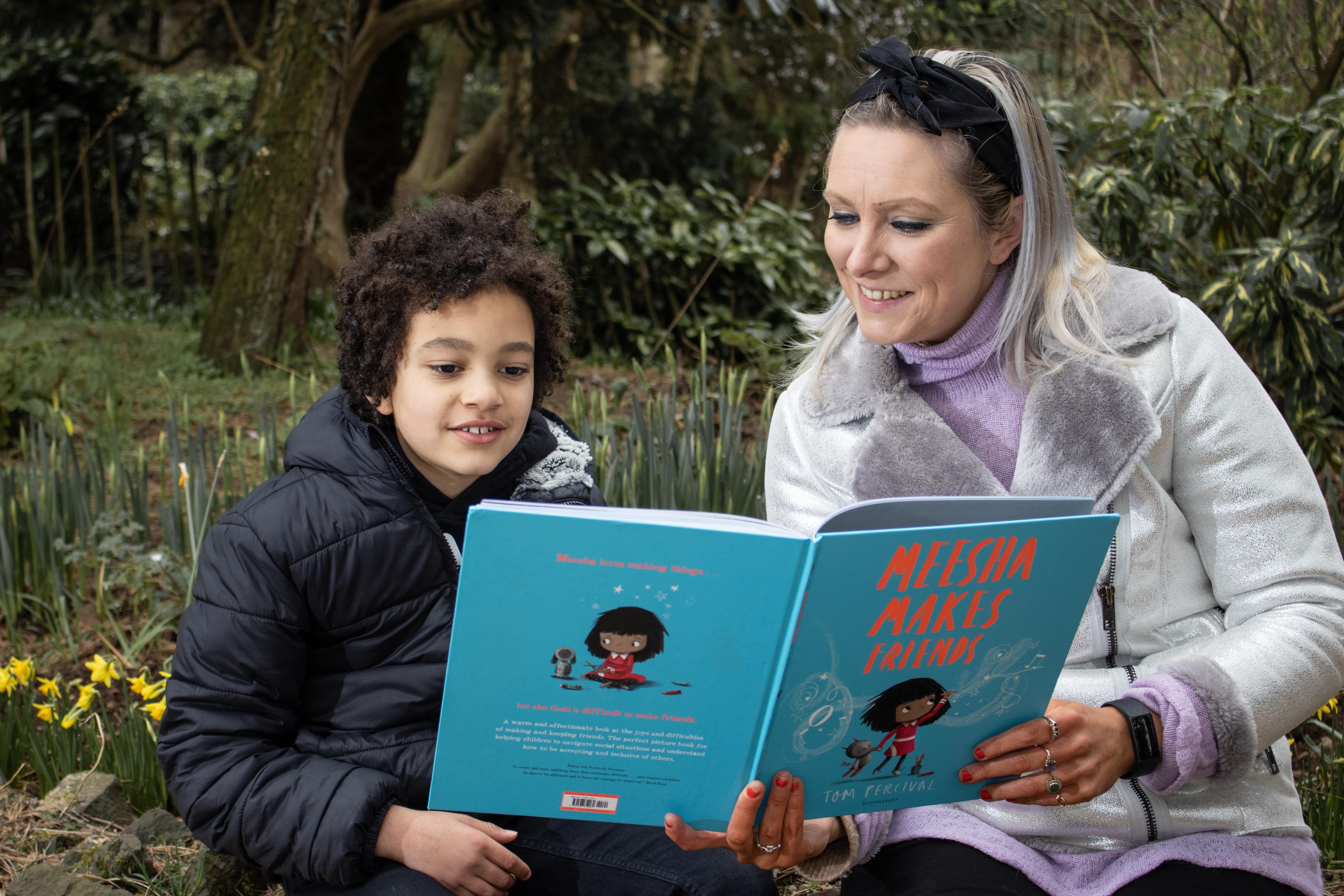CDPB launches new Fellowship programme for mid-career political and civic leaders
The Centre for Democracy and Peace Building has today launched a prestigious new Fellowship programme to support, develop and build the capacity of 24 mid-career leaders in civic society, business, and politics in Northern Ireland.
Opening for applications today, the programme aims to strengthen democratic institutions and ensure that the current and future cadres of political and civic leaders in Northern Ireland are best placed to lead into the next decade and navigate through complexity and challenges.
The Fellowship is delivered by the Centre for Democracy and Peace Building (CDPB), working with key stakeholders and facilitators from the business sector and leading academic institutions. The programme is supported by Allstate NI, Devenish, FinTrU, Fujitsu NI, Ulster Carpets, and the Department of Foreign Affairs and Trade.
In discussions with leading policymakers, academics, business leaders and public figures, Fellows will engage with global social, political and economic issues and seek to develop their understanding of how to tackle those issues in Northern Ireland. This includes a conversation with former NI Assembly Speaker Lord Alderdice on conflict, complexity, and cooperation and engagement with renowned Irish poet Pádraig Ó Tuama and award-winning Turkish-British novelist and women’s rights activist Elif Shafak, set to discuss global divisions. The programme’s Advisory Board, which includes prominent Northern Irish business leaders, will curate sessions seeking to re-imagine leadership in Northern Ireland.
The chosen participants will study at the internationally renowned Blavatnik School of Government at the University of Oxford. The School’s Dean, Professor Ngaire Woods, who specialises in international governance and was awarded a CBE for services to Higher Education and Public Policy in 2018, will lead participants through discussions on strategic communications in polarised contexts with application for both here and abroad.
Through collaboration with leading academics and practitioners such as Professor of Practice in the Management of Public Organisations at Blavatnik and a former Constitution Director at the UK Government, Ciaran Martin, the Fellowship will help our civic, business, and political leaders deliver better outcomes for the communities and organisations they serve.
Those interested can complete the Fellowship application form at HERE where they will be asked to upload their CV and a short essay.
The Fellowship’s Advisory Board includes:
- John Healy, Managing Director at Allstate NI (Chair)
- Professor Karise Hutchinson, Professor of Leadership at Ulster University (Vice-Chair).
- Darragh McCarthy, CEO, FinTrU;
- Owen Brennan, Chairman, Devenish;
- Deepa Mann-Kler, CEO, Neon and Visiting Professor, Ulster University;
- David Clements, Managing Director, Fujitsu NI;
- Nick Coburn, Managing Director, Ulster Carpets.
John Healy, Managing Director at Allstate NI and Chair of the Fellowship Advisory Board, said:
“I am thrilled to be launching the Fellowship today, a brilliant initiative which promises to give our political and civic leaders the knowledge, skills and relationships they require to lead Northern Ireland into the next decade. The chosen 24 candidates will engage in a bespoke programme of academic, leadership and communication development working alongside the UK and Ireland’s brightest minds in a range of fields. I look forward to working with Karise and the wider Advisory Board over the coming months as we work to implement the first of many successful Fellowship programmes in Northern Ireland.”
Karise Hutchinson, Professor of Leadership at Ulster University and Vice-Chair of the Fellowship Advisory Board, said:
“Since its establishment in 1998, the Northern Ireland Assembly has been suspended many times. Governance arrangements here continue to be fragile, and supporting our political, civic and business leaders has never been more important. The Fellowship programme offers participants the opportunity to engage with leading public figures and University of Oxford academics, to help them deliver better outcomes for the people they serve or the organisation they are a part of. Successful applicants will take part in an excellent programme giving them the confidence and ability they require to address Northern Ireland’s economic, social and political challenges going forward. I am very proud to be supporting this fantastic programme alongside my colleagues in the Advisory Board, and I would encourage all those eligible to apply soon.”
TEDxStormont returns with stellar line-up of Studio speakers
Throughout Summer 2021, TEDxStormont is set to publish 12 standalone TEDx Studio talks by speakers from many disciplines and backgrounds to share new and fresh ideas.
This series of talks is aimed at encouraging the public to have a better understanding of themselves and the world around them, while also bringing together brilliant minds to change attitudes on some of today’s hot topic issues.
The dozen speakers will cover a variety of topics including accents, entrepreneurship, resilience, storytelling, the role of the media in post-conflict societies, creativity, shame, trauma, forgiveness, and the art of the impossible.
The series will kick off on Friday 25 June with Belfast-based GP Dr Gareth Patterson who will share his thoughts and ideas surrounding his experience with Gay Conversion Therapy.
Other speakers include Irish cellist, Patrick Dexter who rose to prominence throughout lockdown for his stunning renditions of classical pieces in the backdrop of the Co. Mayo landscape. Patrick will join TEDx Studio to look at the power of music, both in spoken word and through his cello.
Broadcaster turned pilgrim guide, Martina Purdy will deliver a talk on ‘Life as a Journey’, sharing Ten Lessons of Pilgrimage.
Eileen Chan-Hu, the founder of award-winning training and educational social enterprise, CRAICNI will look at what it means to be ‘Made in Belfast’ while also discussing race and diversity in the city.
Ards FC footballer and Youth Ambassador for the Rio Ferdinand Foundation, Leo Brown joins the line up looking at resilience in sport and how that can be transferred to all aspects of life.
TEDxStormont Studio is supported by Allstate NI.
Curator of TEDxStormont Studio, Eva Grosman said:
“Each year we aim to showcase the brilliant stories of people from across Northern Ireland and provide platform to share ideas and innovative thinking.
“The TEDx Studio series also allows people to tune into the talks wherever they are and hear great ideas outside in-person events.
“This year we have a phenomenal line up of speakers from diverse backgrounds who will no doubt spark incredible ideas and conversations. From the stunning music played by Patrick Dexter to the incredibly moving and brave testimony of Gareth Patterson, our speakers will ignite an array of emotions, thoughts and solutions to some of today’s most pressing issues.
“A special thanks goes to our partner, Allstate NI who continuously back our programmes and the TEDxStormont ethos of delivering new and fresh thinking to people across Northern Ireland.”
TEDxStormont Studio talks can be found on TEDxStormont YouTube channel. Follow TEDxStormont social media channels for regular updates.
RSPB NI launches Artist of the Year competition
RSPB NI, the leading wildlife conservation charity, is calling for aspiring artists to speak up for nature, highlighting the nature and climate emergency.
Whether you’re a complete beginner, budding artist or have a wealth of experience, the charity, with the support of TEDxStormont and the world-renowned contemporary visual artist, Colin Davidson, is calling on artists of all ages to use their skills to illustrate a nature rich and climate safe future they want to see for Northern Ireland, as part of its Revive Our World campaign.
Building on the idea of activist art, a term used to describe art that is grounded in the act of ‘doing’ to address political or social issues, the competition aims to give a platform to a range of voices showing those in power why they should address the nature and climate emergency before it’s too late.
The winners will not only be crowned Artist of the Year but the artwork will be centre stage at TEDxStormont Countdown in November to coincide with the 26th UN Climate Change Conference of the Parties (COP26).
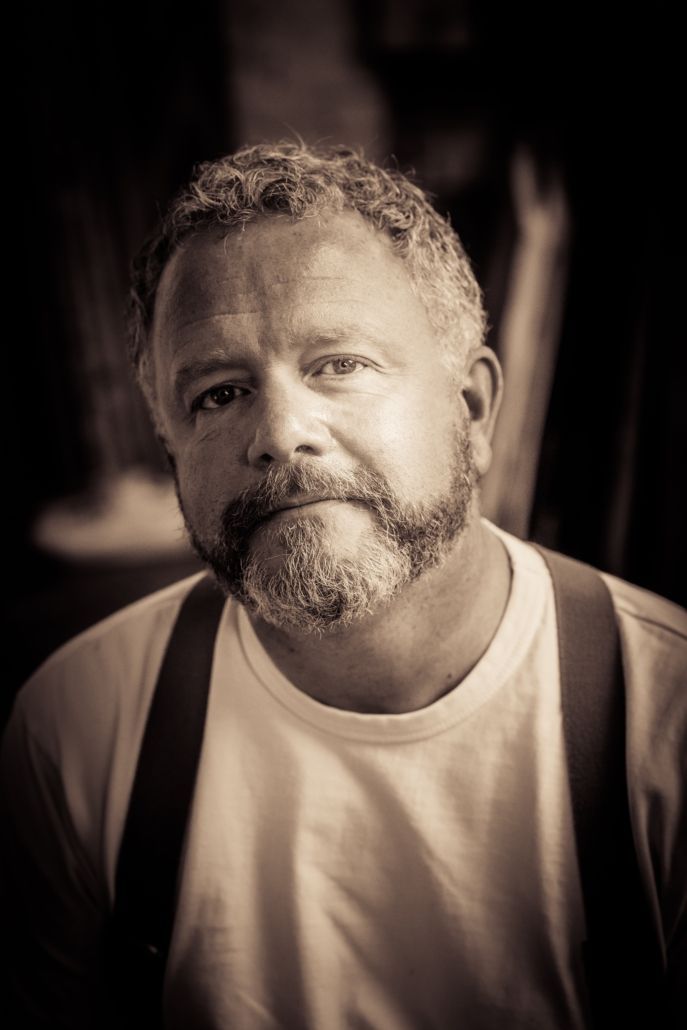
The world-renowned contemporary portrait artist, Colin Davidson, has joined RSPB NI and TEDxStormont calling on artists of all ages to use their skills to illustrate a nature rich and climate safe future they want to see for Northern Ireland, as part of the charity’s Revive Our World campaign. Credit: Chaz Oldham.
Colin Davidson, who is one of the judges for the competition, said, “Art can capture and communicate a uniquely personal experience. Portraying the spirit and emotion of a subject is what drives me in my work. Art can offer the viewer a door into another way of looking at our world, and that’s why I’m looking forward to seeing the entries for this year’s competition, to see what excites people about the future of Northern Ireland.”
Sara McCracken, RSPB NI’s Head of Fundraising and Communications commented, “Throughout history, some of the biggest changes have been brought about by a small group of passionate people, from civil rights to votes for women, including the start of the RSPB itself. Over the years, artists have explored and documented history and politics to huge effect, the nature and climate emergency is the defining issue of our time, this is your chance to have your say and ‘canvas’ for nature.”
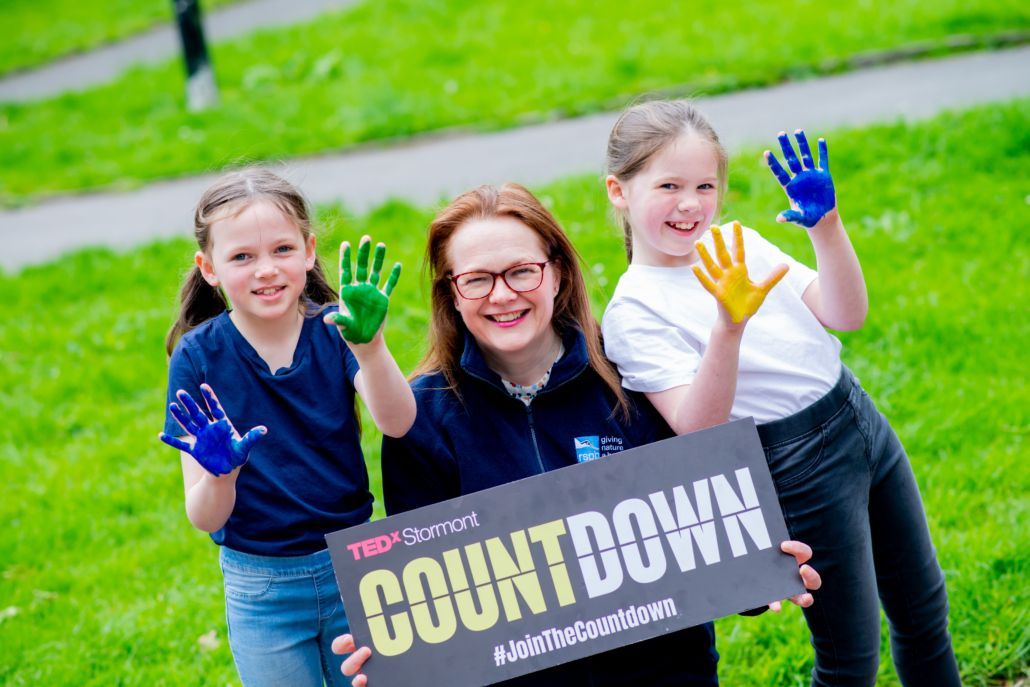
RSPB NI’s Sara McCracken is photographed with her daughters Maisie and Isobel as they ‘canvas’ for nature by illustrating a nature rich and climate safe future they want to see for Northern Ireland, as part of the charity’s Revive Our World campaign. To enter to become RSPB NI’s Artist of the Year, http://bit.ly/RSPBNIArtistOfTheYear
Curator of TEDxStormont and CDPB CEO Eva Grosman, added, “At TEDx we passionately believe in the power of ideas to inspire, change attitudes, lives and ultimately the world. The Countdown initiative is the perfect opportunity for Northern Ireland’s climate change experts and environmental leaders to discuss ideas for change. The nature and climate emergency effects everyone, and through this competition we want to shine a spotlight on the voices of the public who want to see a change in how we treat our natural world.”
There are no restrictions on the type of artwork, it can be anything from photography and painting to ceramics or even crochet. The competition is split into four categories Adults (18+), under 8s, 8-11, and 12-17.
Please email a photo of your artwork to Campaigns.NI@rspb.org.uk with the heading ‘Canvasing for Nature Competition’, and tell us your entry details (name, age, contact telephone number) and category by 20th July 2021.
The artworks will be judged by Colin Davidson supported by a panel made up of representatives by RSPB NI and TEDxStormont.
RSPB NI works to protect precious species and habitats across Northern Ireland and is campaigning for targets in law to save nature through its Revive Our World campaign. The charity has been operating in Northern Ireland for over 50 years to inspire a world richer in nature. The charity has more than 10,000 members, around 60 employees, 300 volunteers and 10 reserves. For more information on the competition, visit http://bit.ly/RSPBNIArtistOfTheYear
CDPB Annual Report 2020 – 2021
This past year has brought great challenges for many as together we have faced the impact of a global pandemic. Despite this, CDPB has continued to deliver a programme of activities that bring people together, even if it has often been by virtual means. Our commitment to peace building and the strengthening of democracy remains undiminished.
This annual report provides an insight into our ongoing work, often alongside excellent partners such as Bryan Patten and the Washington Ireland Program, with a focus on empowering the next generation as they take on the baton of peace and step forward to provide the leadership of the future. One of our successful joint initiatives in the past year has been our engagement with Yale University in delivering the ‘Democracy, Identity and Civil Society’ Program and we hope to undertake further such projects in the year ahead.
Our sincere appreciation also goes to our funders, including the Department of Foreign Affairs and the Irish American Partnership. They share our desire to foster and promote reconciliation and join in our commitment to investing in our young people. Without the support of people like Aidan Browne and Mary Sugrue we would not have been in a position to deliver so much in these difficult times.
I also wish to place on record our great admiration for the solid leadership provided by our CEO Eva Grosman as she has directed the work of our project teams and helped mentor our fantastic interns and also our appreciation to the members of our Corporate and Advisory Boards. So many people give freely of their time to advise and support the work of CDPB and without them, our achievements would not have been possible.
Looking ahead, our Board has exciting plans for the development of CDPB. We are currently in the process of finalising our charitable status and have plans to develop a new ‘Fellowship’ programme and an online platform as well as establishing new corporate partnerships that will help make us even more effective in delivering our various projects.
As our peoples begin to emerge from the pandemic and look forward to better times, maybe we have a slightly different perspective on life and are more appreciative of things we once took for granted. Perhaps this offers an even greater opportunity to promote and strengthen the values associated with democracy and peace building and to be agents for change in a way that is truly transformative of how we live and work together.
Sir Jeffrey Donaldson
TEDxStormont COUNTDOWN returns to find solutions and answers to the Climate Emergency
TEDxStormont Countdown is set to return this autumn as a part of TED’s global initiative to champion and accelerate solutions to the climate crisis, turning ideas into action.
TEDxStormont Countdown is due to take place in November 2021 to coincide with the 26th UN Climate Change Conference of the Parties (COP26) in Glasgow. The COP26 summit aims to accelerate action towards the goals of the Paris Agreement and the UN Framework Convention on Climate Change.
In the run up to the Countdown event, TEDxStormont will host a series of online and in-person initiatives and campaigns to encourage conversations about climate change across Northern Ireland with a focus on five core themes – energy, nature, food, materials, and transport.
In the first session, TEDxStormont is to host Shaping Our Electricity Future: Have Your Say which will see passionate climate activists take part in an online event focused on reimagining the electricity grid so that it can deliver a clean electricity future. Experts from SONI, the company which runs Northern Ireland’s electricity grid, will put their plans to the group for insights and challenge.
Taking place on 25 May, the virtual session, hosted by an actress and comedian Nuala McKeever will be an opportunity for attendees to contribute to the consultation and play their part in creating a grid which delivers world-leading levels of clean electricity.
The event will also hear from young climate campaigner Anna Kernahan, and Sara McCracken, RSPB NI’s Head of Fundraising and Communications will introduce RSPB’s Artist of the Year competition. The charity with the support of TEDxStormont will be calling for artists of all ages to use their skills to illustrate their vision of a nature rich and climate safe future for Northern Ireland. The competition aims to give a platform to these voices and encourage politicians to match their words with action.
Curator of TEDxStormont Countdown, Eva Grosman said:
“The Countdown initiative is the ideal opportunity for Northern Ireland’s climate change and environmental leaders from a range of sectors to join together to discuss and action the key solutions that will prevent further damage to our environment.
“TEDxStormont Countdown’s aim is to highlight, through open discussion, the important issues such as food, nature, energy, materials, and transport, that are having major impacts on our environment.
“TEDxStormont Countdown live is set to return in November as part of the TED Countdown which will see global leaders of climate action join together to highlight the major challenges and solutions to the core climate issues. In the run up to the COP26 in Glasgow,
TED Countdown will raise even more awareness of the climate crisis and will provoke our leaders in Government and beyond to think ahead to what must be done to save the planet for good.”
Natasha Sayee, Head of External Communications and Stakeholder Engagement at SONI said:
“Shaping Our Electricity Future is SONI’s direct response to the climate crisis and is fundamental to Northern Ireland’s ambitions of reaching at least 70% electricity from renewable sources by 2030. The move to clean electricity will affect everyone in Northern Ireland, and we want to engage with the public to hear their opinions on how best to move forward ensuring we meet the targets and respond to the Climate Crisis.
“We are thrilled to be partnering with TEDxStormont Countdown once again to highlight solutions and big ideas to the changing way we work in order to protect the planet. We want Northern Ireland’s electricity system to enable and support the climate emergency response. We are stepping up to do this and through our partnership with TEDxStormont we urge the public to join and help us inform how we can all move forward in a greener, cleaner society.”
Sara McCracken, Head of Fundraising and Communications at RSPB NI said:
“Northern Ireland is waking up to the nature and climate emergency and we are pleased to see important legislation such as the Climate Change Bill moving through the Assembly, as well as our participation in the upcoming COP26 event.
“TEDxStormont Countdown is a platform for Northern Ireland’s leading environmentalists and activists share ideas and thoughts on what needs to be done to protect the planet. Last year’s TEDx Countdown saw vibrant discussions and thought-provoking proposals exchanged on how to be kinder to our planet, and what actions are required in the global effort to affect this needed change.”
“We look forward to this year’s TEDx Countdown, especially the unveiling of the RSPB NI Artist of the Year, which will see incredible works of art that capture a future vision of nature and why it must be preserved.”
New anti-racism and diversity children’s initiative launched by Unite Against Hate and Still I Rise
The Unite Against Hate campaign challenging prejudice and hate crime has partnered with Still I Rise – Diversity Storytelling to encourage the education of diversity and racial inclusivity among children.
Throughout the month of March, Unite Against Hate and Still I Rise will host storytelling sessions and share resources focusing on the positives of kind, healthy and happy friendships.
On Fridays everyone will be encouraged to participate in the #FriendshipFriday initiative, use online resources, including colouring sheets, learn about the diversity and share what makes us different and unique.
Aimed at children aged 5-11, parents, teachers and young people will be encouraged to promote racial diversity and the importance of social inclusion to children from an early age.
Still I Rise – Diversity Storytelling is a project set up during the pandemic which promotes the reading and sharing of literature which celebrates diversity, tolerance and acceptance within society. Working with children, sessions focus on creating a kinder, generation through reading books where their own experiences are represented and a sense of belonging and empowerment is created.
Founder of Still I Rise – Diversity Storytelling is anti-racism and diversity campaigner Orla McKeating who delivered a pioneering talk on the issues of social stigma, especially around race in Northern Ireland, to a packed audience at TEDxStormont in 2019. Since then, Orla has become an advocate for race inclusion, especially for women and children in BAME communities.
Diversity Storytelling and #FriendshipFridays has been supported by Belfast City Council, Community Foundation NI and Irish American Partnership.
Orla McKeating from Still I Rise – Diversity Storytelling said:
“In racial inclusion terms, Northern Ireland is progressing. However, the 2019 Northern Ireland Life and Times Survey showed 25% of the population still believed themselves to be ‘a little prejudice’ towards ethnic minorities. This shows work still must be done to reach out and inform people about tolerance and acceptance of all races. At Still I Rise, our mission is to break down the barriers of race and discrimination in Northern Ireland and work with our communities to promote inclusivity and kindness through words and storytelling.
“We are thrilled to be collaborating with Unite Against Hate to promote the message of diversity. Through sharing stories and using pictures and drawing to share with children how tolerance and acceptance of people of all races and ethnicities is key to a kinder world, we hope to inspire our children to be better than previous generations.
“Diversity Storytelling is an excellent way to teach our children about our differences and also what binds us together. Children are never born with hate or prejudice attitudes. These are learned behaviours, often taught by society. If we can teach our children from an early age to be open and considerate to all people, then we can really work towards making our communities more open and inclusive, no matter age, gender or race.
“We are encouraging all parents and teachers across Northern Ireland to get involved and be part of the change our society needs. Our children are our future leaders. If we can show teach them from an early age that difference is something to be celebrated, then the very idea of racial intolerance and hate will be one of the past.”
To register and learn more please visit: www.uniteagainsthate.org.uk/storytelling

